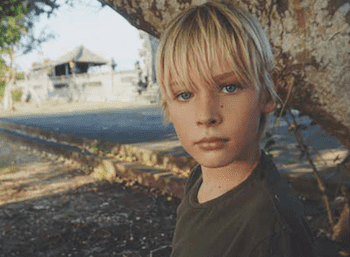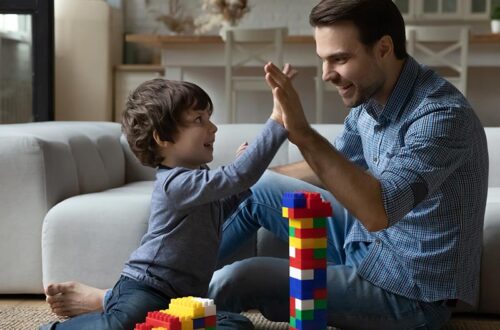Helping Children Cope with Traumatic Events
Ask Nicole: September 2019
By Nicole M. Young, MSW
It’s been hard to read and watch the news lately. Three mass shootings within one week. Migrant children in detention camps. Families torn apart after immigration raids. With each “new” story, I feel sad, angry, and heavy with worry. I worry about the safety of my children when mass shootings occur in public places without warning. I worry about what children of undocumented immigrants must feel, not knowing if they’ll see their parents again, or living in constant fear of being separated from their families.

Traumatic events like these create emotional scars that last a lifetime, long after the media has moved on to the next big story.
This monthly column provides tips for anyone who’s helping raise children, based on the world-renowned Triple P – Positive Parenting Program, available to families in Santa Cruz County. If you have a question or idea for a future column, please email me at [email protected].
Dear Nicole,
I’ve been really scared and stressed lately. Every day there’s another horrible story in the news or social media about mass shootings or children and families being separated or deported. I used to think I could shield my kids from the news, but they’re hearing about these things through their friends and social media. They’re afraid something bad will happen to our family, and I feel like a liar when I tell them everything will be ok. What can I do?
– MJ
Dear MJ,
Thank you for asking this question. It’s difficult for many adults to cope with crises and traumatic events. It’s often harder for children and teens – especially if they already view the world as unsafe because of abuse, neglect, bullying, or discrimination – since they might not have the skills and support to cope with extreme stress and trauma. Here are some tips to try:
Provide a safe, loving home environment.
It’s important for children to know that their parents and caregivers love them and will do everything they can to keep them safe. Spend quality time talking, playing, reading, eating meals, or cuddling together. Maintain your regular morning, mealtime, and bedtime routines as much as possible. Consistent routines create predictability, which can be very reassuring to children and teens, especially in stressful times.
Watch for signs of emotional distress.
Children (and adults) have a wide range of feelings and reactions to traumatic events, including anger, fear, sadness, confusion, guilt, depression, and anxiety. Some children express themselves verbally, while others are quiet or withdrawn. Sometimes, children’s behaviors speak louder than words. Crying, angry outbursts, and difficulty sleeping, eating, or concentrating are common signs that children and teens are in emotional pain.
Provide opportunities for children to express their feelings.
If children and teens want to talk, listen to their thoughts, feelings, and opinions. Encourage them to ask questions, and answer with age-appropriate information. Young children may need help putting their feelings into words, while older children and teens may want concrete reassurance – or have their own ideas – about what can be done to restore a sense of safety at home, school, and in the community. If children or teens don’t want to (or can’t) talk, encourage them to express themselves through art, music, picture books, or imaginary play.
Monitor children’s exposure to news, social media, and adult conversations.
While being aware of current events is important, constant exposure to negative news can contribute to increased anxiety and fears. When young children see or hear repeated news coverage of a traumatic event, they might believe it’s happening repeatedly or close by. And even if they don’t understand what’s being said, children can sense and react to their caregivers’ emotions. Older children and teens are more likely to be able to understand what’s being said, which could lead to feeling hopeless or a lack of control over their friends’ and family’s safety.
Take care of yourself.
Notice your emotions and take a break from the news when you feel overwhelmed, anxious or angry. Set a good example by telling your kids how you’re feeling and saying you need to take care of yourself. Then find a healthy outlet for those feelings – e.g. exercising, meditating, deep breathing, praying, reading, talking to someone, journaling, or just sitting quietly by yourself.
Final Thoughts.
It’s often easier to let fear rule our heads and hearts instead of love and compassion. Teaching children (and ourselves) tools to cope with distress might not stop traumatic events from happening again, but it can help restore a sense of safety and hope for a better future.
Nicole Young is the mother of two children, ages 15 and 19, who also manages Santa Cruz County’s Triple P – Positive Parenting Program, the world’s leading positive parenting program. Scientifically proven, Triple P is made available locally by First 5 Santa Cruz County, the Santa Cruz County Health Services Agency (Mental Health Services Act) and the Santa Cruz County Human Services Department. To find a Triple P parenting class or practitioner, visit http://triplep.first5scc.org, www.facebook.com/triplepscc or contact First 5 Santa Cruz County at 465-2217 or [email protected].






